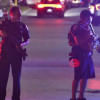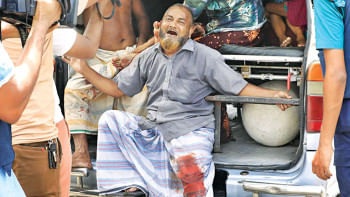Don't shoot
The killing of three people in Pabna, Brahmanbaria and Jessore in police 'shootouts', speaks of abuse of power. Rubel, a prime suspect in the murder case of a police officer, was reportedly caught 'in the line of fire' when a team of policemen conducted a drive to nab his associates. Why would a suspect be taken on board while the police go on an operation to capture dangerous criminals? Does it not make more sense to keep him in secure custody in order to gather important information that could help with the investigation and ultimately lead to justice? One wonders if the police handbook permits this practice by the personnel.
The other two, allegedly robbers, were killed in 'gunfights' with the police. Such killings are becoming disturbingly common. Since the start of this month, 16 people have been killed, many of them accused in criminal cases. Do the law enforcement agencies realise that it hurts the country's moral standing in the world and erodes a fundamental social contract that they are protectors of people, not killers? Even criminals have a right to access legal options.
Research shows that smarter, less aggressive policing produces better results. Performance should be measured in terms of how many crimes have been prevented instead of how many alleged criminals have been killed. The relationship between the police and the policed requires mutual trust. Public safety without public approval is not public safety. Conversation about police reforms is rife, but any kind of reform has to be initiated from within.

 For all latest news, follow The Daily Star's Google News channel.
For all latest news, follow The Daily Star's Google News channel. 








Comments